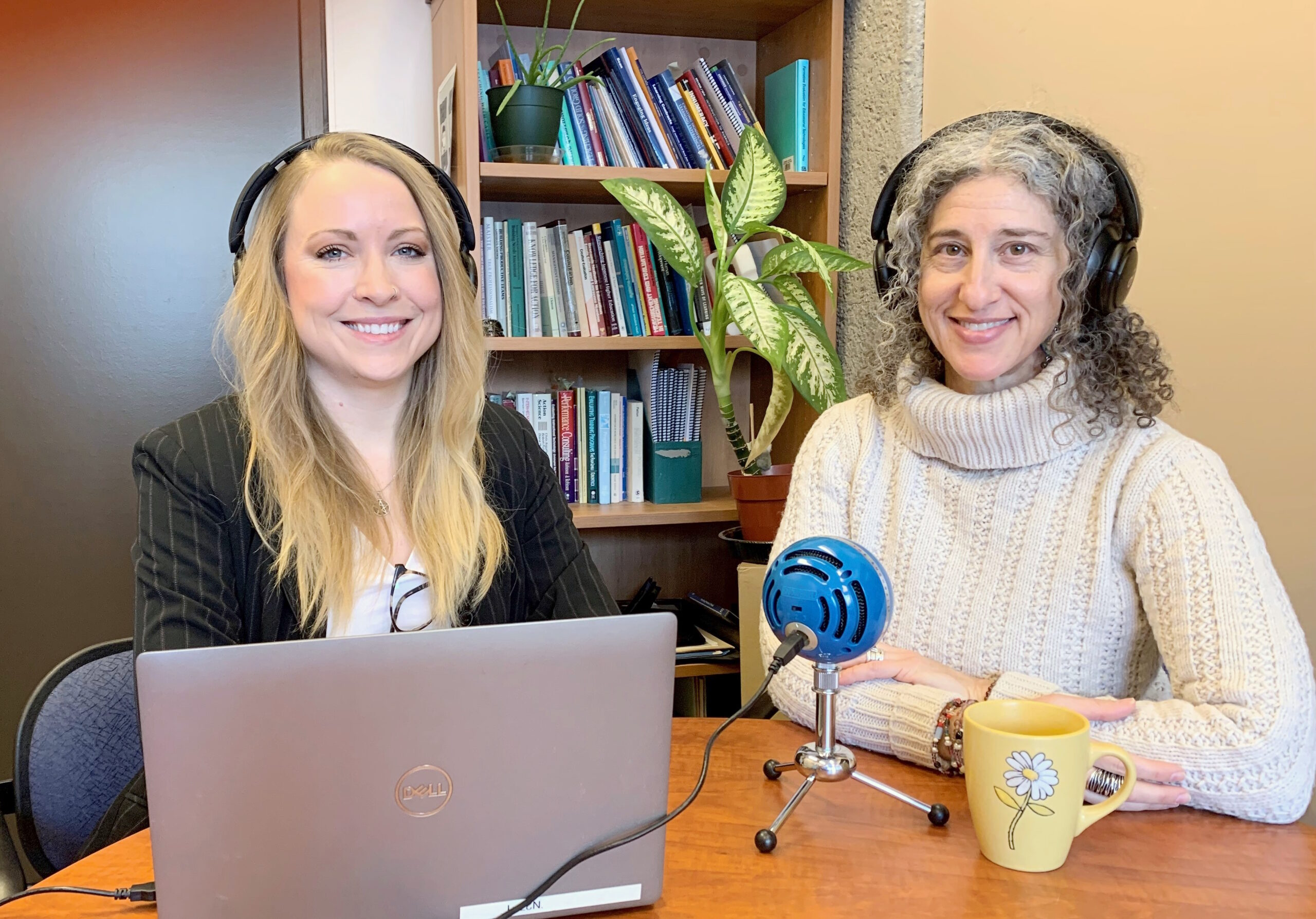
This time of year, we hear a lot about the winter blues, and articles abound with tips for improving health and well-being. When it comes to university life, assessment can be one of the biggest sources of stress and worry, for students and instructors alike, as it often comes with intensive workloads, tight timelines, and negative emotions.
Teach.Learn.Share, a new podcast developed by Teaching and Learning Services (TLS), has been exploring the links between assessment and well-being. Throughout a five-episode miniseries released over the last term, TLS co-hosts Margo Echenberg and Jasmine Parent held thoughtful conversations on assessment with McGill staff, students, and an instructor. The series aims to shift the way we talk about assessment and provide inspiration for assessment practices at McGill.
Bringing joy through learning
While assessment often has negative associations, a recurring theme throughout the conversations was how people might make assessment a more positive experience. “I think that we need a collective shift away from the idea of thinking about assessment and evaluation as something that’s pejorative … and bringing more joy to that space, so it’s less of a stressor and more of a way to celebrate good pedagogy or student success,” said Charlene Lewis-Sutherland, a Senior Advisor with McGill’s Equity Team, and a guest in episode two.
Conversations with student guests highlighted how the process of learning can be a fun and enjoyable experience, and some of the best assessments are those that challenge students to think creatively and learn through the process. In episode three, Jordan Leeson, who is studying Physiology and Anthropology at McGill, said, “I have found that more self-directed projects, for instance, where you can pick a topic in an area of research … are a motivator for me.”
However, enjoying learning does not need to come at the expense of academic rigor but may in fact be connected to it. “I’m very committed to the idea that well-being, in the sense of experiencing maximum learning and maximum self-actualization through our learning, intersects very intricately with deeply engaged learning,” said Andrea Creech, PhD, Professor of Music Pedagogy at the Schulich School of Music, and a guest in episode five.
Sharing expectations and providing feedback
Each episode shared concrete strategies for connecting assessment to learning. For example, students often feel more confident and engaged with an assignment if it is clear what is expected of them and how it will be graded. Similarly, receiving feedback from the onset of their course work helps students understand what they’re doing well and what they need to focus on to improve.
Hyeonwoo Park, a Management student at McGill, shared his thoughts on the impact of clear expectations: “When students are more confident about the path … or the goal that they’re trying to achieve, they’re just more passionate about it. Therefore, they work harder to study.”
However, these strategies might put the onus on instructors to do additional work. “Providing feedback can certainly be very time-consuming and sometimes extremely tiring and exhausting,” said Creech. “On the other hand, an investment in formative feedback always leads to higher quality student work … For example, giving students feedback on drafts of their work always, in my experience, has led to better quality final work. And then, … at that stage, it is much easier and much more interesting to engage with.”
Sharing expectations up front can also minimize student questions and complaints and allow instructors to better plan and assess for learning outcomes.
Changes to assessment policy at McGill
Many of the topics discussed in the podcast are addressed in McGill’s new Policy on Assessment of Student Learning (PASL), coming into effect in Fall 2024. The Policy outlines four principles and several changes intended to promote student learning through assessment.
The Teach.Learn.Share podcast miniseries helps break down the rationale for PASL and offers strategies for implementing its key elements. A second series, to be released later this term, is currently in the works with McGill instructors sharing their assessment strategies. Subscribe with your favourite podcast player to be notified when it is published.

Teach. Learn. Share. is a great series. I’ve thoroughly enjoyed the knowledge and advice the podcasters have shared with instructors across the campuses. I hope they keep it up!